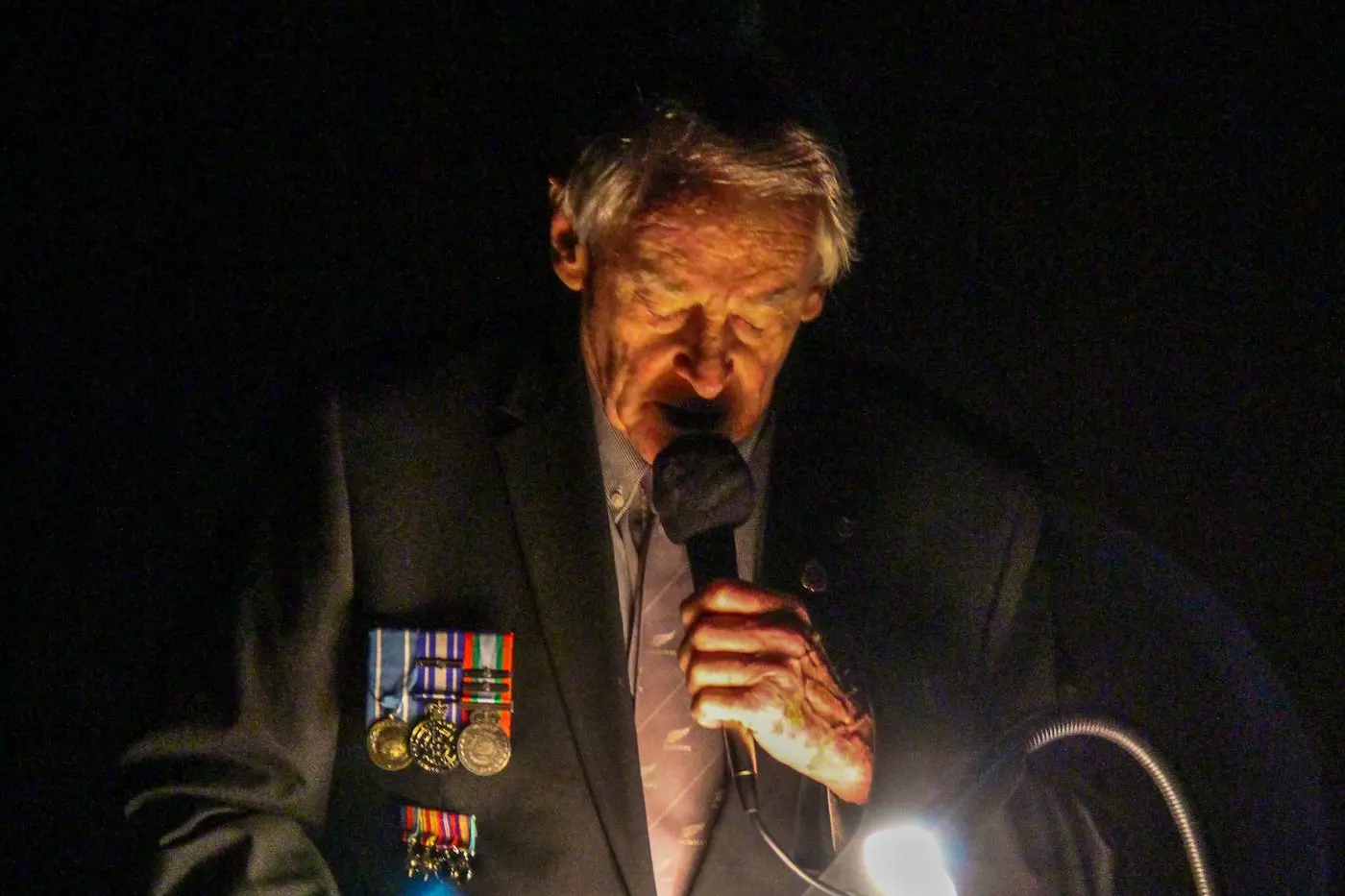PHOTO
MORE than a century after Gallipoli, Mansfield’s commitment to honouring fallen comrades — including 10 local men — and those still serving remains strong, with hundreds attending ANZAC Day services across the shire last Friday.
Dawn services were well attended, and the Mansfield march and 10am service attracted a large crowd along Highett Street.
Despite forecasts of rain, it was a mild morning and dry conditions prevailed.
As dawn broke over the surrounding hills, the first light served as a reminder that even in times of war and conflict, hope can overcome darkness.
A large crowd gathered at the Mansfield Menin Gates for the moving 30-minute service.
Mansfield RSL Sub-Branch president Ken Thompson set the scene in his introduction.
“At dawn on 25 April 1915, 17,000 allied forces landed on the Gallipoli Peninsula at ANZAC Cove with the hopes of securing the Dardanelles and allowing the Imperial Fleet to reach Constantinople," he said.
“This was the first major military campaign for soldiers from Australia and New Zealand.
“They fought side by side despite the terrible conditions.
“The spirit of the Anzacs was born at Gallipoli.
“It is the spirit which makes men and women stick together.”
David Bock, ex-Royal Australian Navy and Mansfield RSL member, conducted the morning prayer.
The dawn service address was delivered by Mansfield’s Bill Cummins — a former United Nations Peacekeeper and local RSL member — reflecting on the 110th anniversary of the landing at Gallipoli.
“When dawn arrived, the Turks could view the landing and commenced firing,” Mr Cummins said.
“Time and time again the ANZACs tried to climb the cliffs but were unsuccessful.
“The Turkish artillery attack was devastating, with shrapnel taking many casualties.
“The bodies could not be buried, flies caused dysentery, wounded soldiers received poor treatment due to inadequate facilities, drinking water was scarce, food was poor, and the death toll climbed alarmingly.
“Eleven thousand ANZACs had been killed when it was decided to evacuate from Gallipoli in December 1915."
Mr Cummins said that while Gallipoli was just one battle in Australia's history, its enduring legacy of valour, resilience, and mateship showed “no suggestion of defeat or surrender, no matter how hard the going.”
Later that morning, Mansfield RSL member Matt Leggett continued the theme in his address at the main service following the march.
He also shared the address at the Bonnie Doon dawn service.
Mr Leggett reflected on the names inscribed on the Mansfield War Memorial, many of whom came from families still living in the district, and urged those gathered to consider who these men were.
“I want to reflect on 10 of these names — the young men of the Mansfield district who died in the Gallipoli campaign,” he said.
Among them was John (Jack) Slattery from Bonnie Doon, whose brother James also landed at Gallipoli on April 25.
“John’s father received a death notice referring to his son, J. Slattery, as having died of wounds,” Mr Leggett said.
“For months he did not know whether it was John or James who had died. James survived the war and returned to Australia."
Other local men remembered included Frederick Graves, John Kennedy, Stephen Arbuthnot, Samuel McColl, Roy Willan, Richard Carey, George Smart, Norman Folks, and Henry Dury.
The service included an opening prayer by Father George Feliciouz, the wreath laying, contributions from Mansfield Secondary College students, and the Ode.
Music was provided by the Mansfield Mad Orchestra and choir, who also joined the march.
Following the dawn service, a gunfire breakfast was held at the CFA depot, and the public was invited to the RSL clubrooms after the main service for refreshments.





